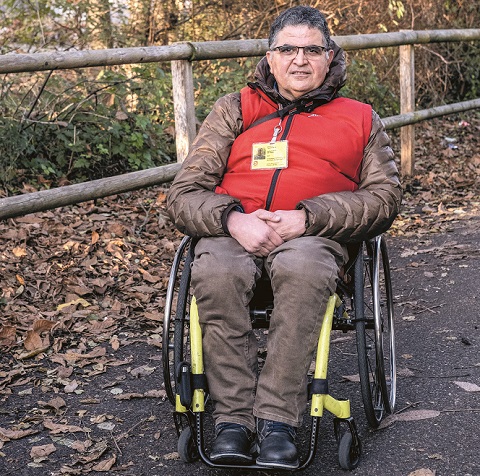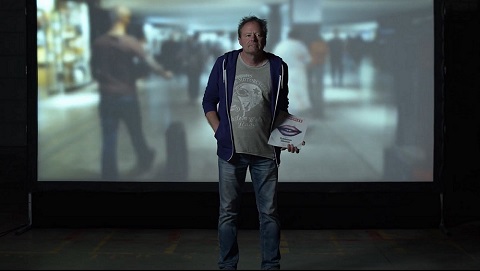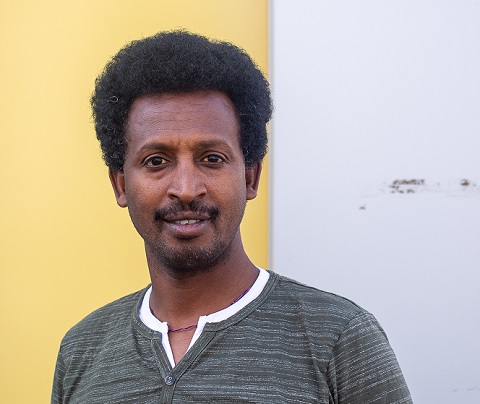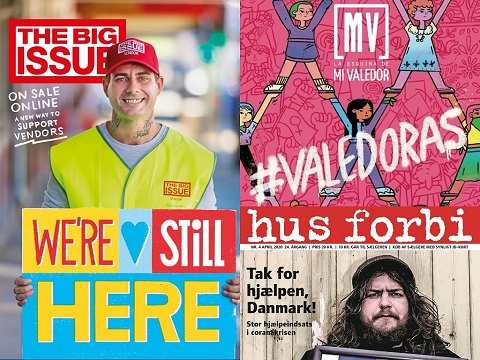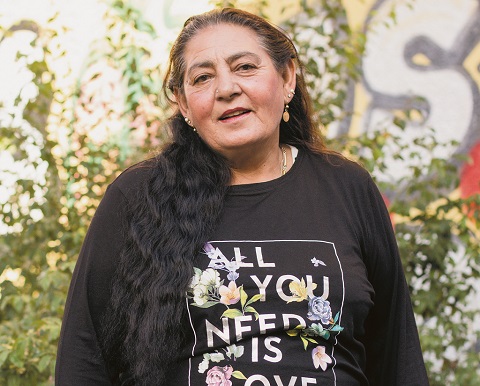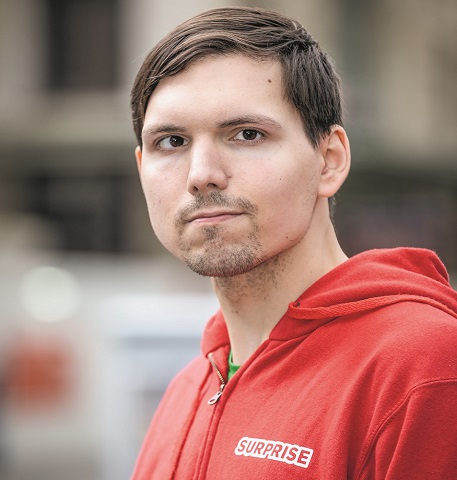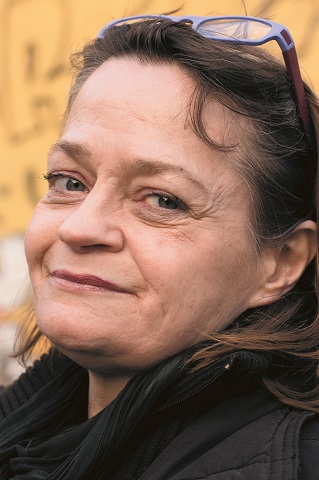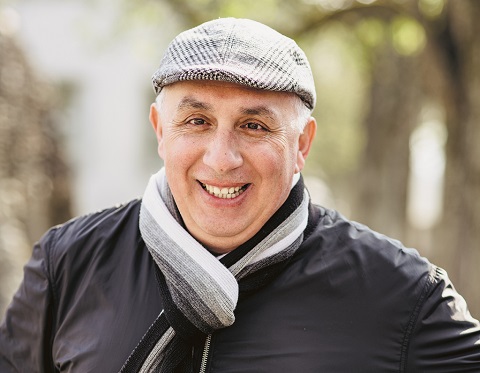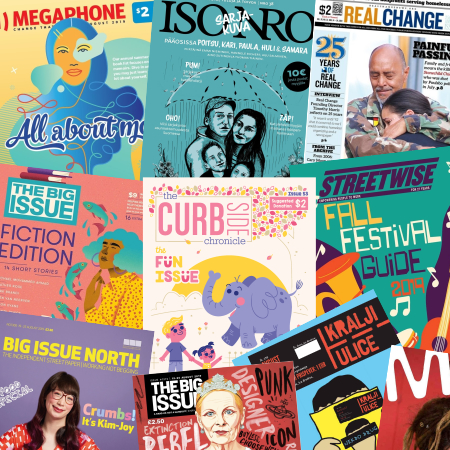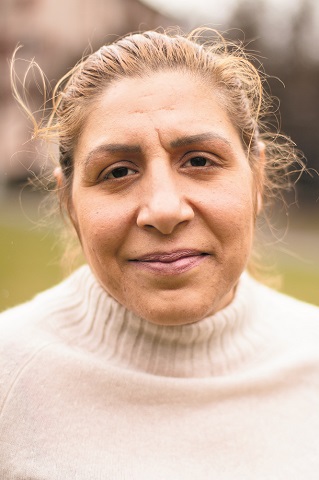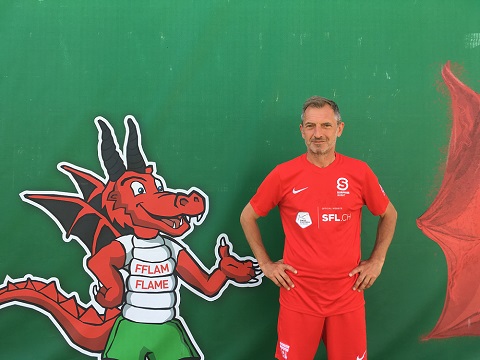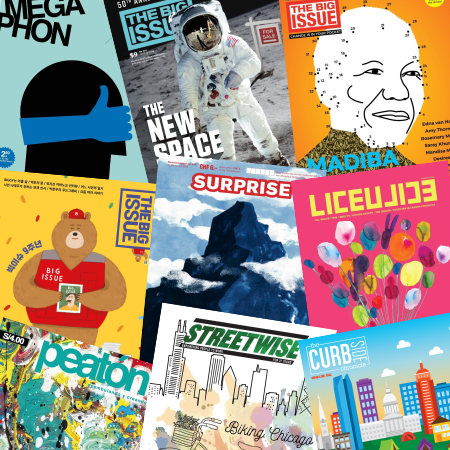By Gisela Feuz, Surprise
Last night at the 2018 INSP Awards, this piece won Best Cultural Feature. Now, you can read it in full.
“I know about life on the street. I would paint there every day and was in contact with lots of people for whom the street was their home.”
Sitting on the cozy and somewhat worn sofa in his small apartment in Zollikofen, no-one would guess that Slavcho Slavov, whom everyone calls Slavo, has lived through a veritable odyssey. The 48-year-old Bulgarian has just gone through a painful operation for kidney stones. But he has in no way lost his sense of humour. Smiling, and speaking in a deep, sonorous voice, Slavo tells us how he set out from Bulgaria in 2005 on an odyssey across Europe that was to last for around ten years. His wife, Wanja, had died young from cancer and left her husband with two small children. Slavo raised the boy and girl with the help of his mother, but when they turned 14 and 16, more money was required. “My children’s education was the most important thing for me,” explains Slavo. It was as good as impossible to find a job in economically-troubled Bulgaria. Matters were complicated by the fact that he had lost his left forearm in a car accident when he was 26. So Slavo left the two children in the care of his mother and took his seat on a bus heading west in order to look for work.
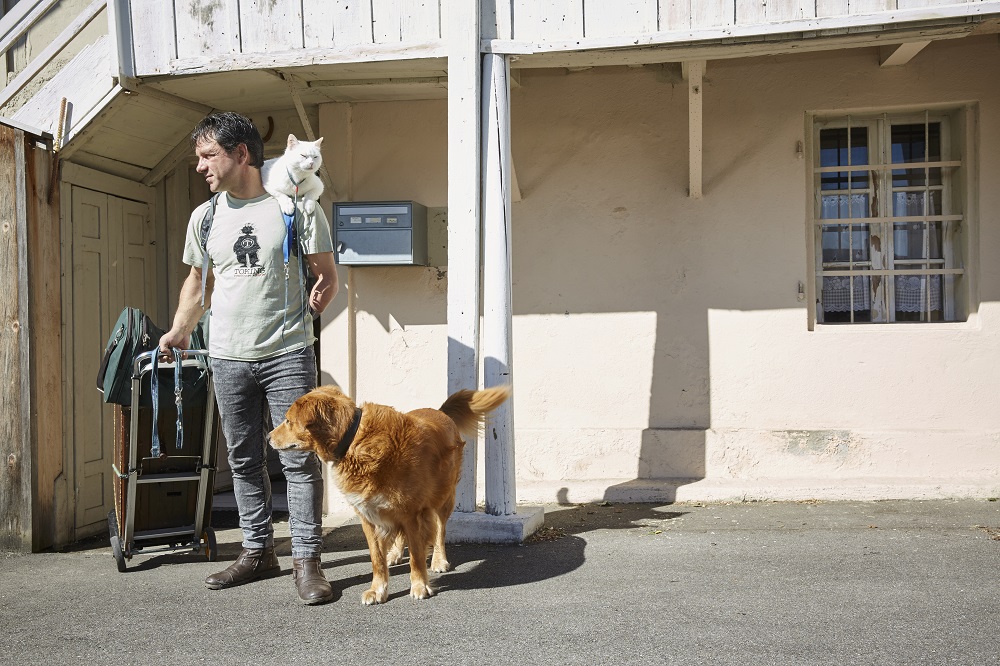
First stop: Venice, Italy. Things were hard at the start in Venice because, with no friends or knowledge of foreign languages, with no money and only one arm, Slavo had no hope of making it in the Italian labour market. But he did not let that get him down. “The most important thing is to have no fear and be open with people. And if that does not lead to work directly, then you have to find your own niche,” Slavo says. He started painting pictures outside in public places. He started by using stencils to paint the famous portrait of Che Guevara onto the pavement. Later, he painted small, pretty miniature beaches on stones, which he then sold to tourists as souvenirs. And later still, using powerful colours, he painted the wide sea, its wildlife and natural landscapes on canvas. While Slavo speaks about his adventures on the street, his dog Lourd listens closely and watches every move his master makes. “As a puppy, he looked like a little fluffy toy. A handsome fellow. When he had a drink, he looked at me full of trust and gratitude. I was enchanted.”
From Italy, Slavo travelled all over Europe, visiting France, Belgium, Holland, Denmark, Germany and Greece, where he earned money as a street artist and often slept under the stars or in ruined buildings. In the French pilgrim town of Lourdes, he found everlasting love in the amber-coloured eyes of a puppy dog with a reddish-gold coat, which had been born in the home of a friend. Inspired by the area, Slavo named the puppy “Lourd.” From then on, the two were inseparable.
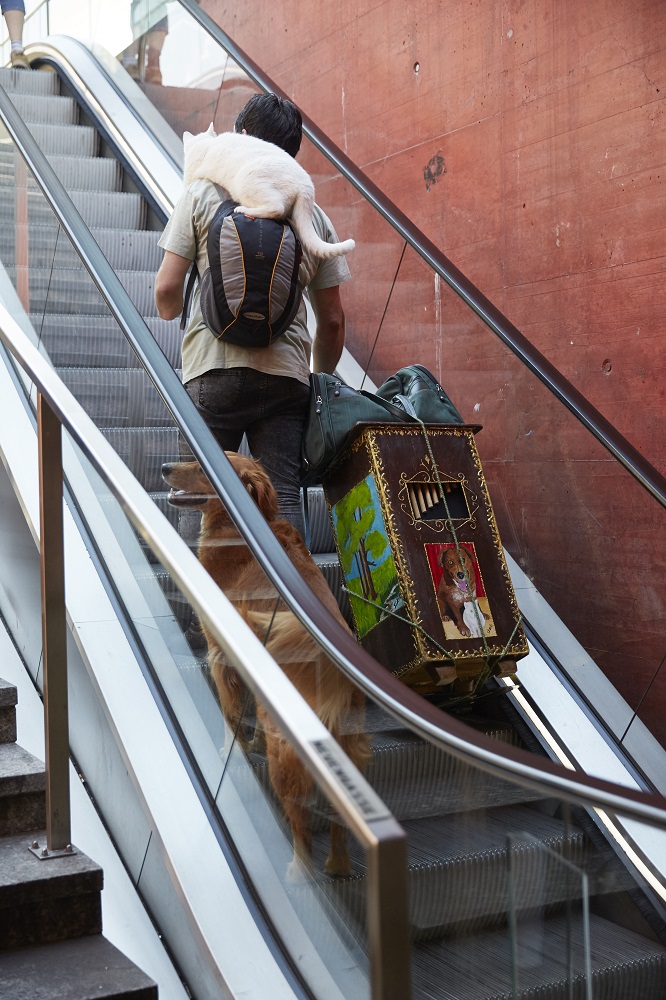
“Suddenly Lourd started barking at one of the ruined buildings, so I went closer, but even though I looked closely, I did not notice anything out of the ordinary,” Slavo recalls, as he thinks back to a day of particular significance. “Lourd stopped barking, but remained uneasy standing in front of the ruins. Now I could hear what had made him bark. I heard a faint mewing from the ruins.” With the help of the driver of an excavator, Slavo and Lourd rescued a snow white cat that was trapped under the rubble of a demolished house. The creature was in a bad way. Slavo took it to the vet and then parted with several hundred Euros to treat the pneumonia it was suffering from. The cat, which had one blue eye and one green eye, survived and was quickly christened “Matz” (a short version of the Bulgarian word for cat). Since then, he has never left Slavo’s side. Straightaway, Slavo, Lourd and Matz formed a trio. “After a short time, the same thing happened with Christin as with Karin. Christin also wanted to run my life for me. She gave me an ultimatum, the dog or her, and it goes without saying: I am separated from her.”
During his years of wandering, there have been many women interested in him and who wanted to get him off the streets, Slavo says. But these women would not have accepted his homeless friends or his animals, and he only comes as part of a threesome–with Lourd and Matz. He also has a strong desire for freedom. At present he has no girlfriend, but he is not at all lonely. Even if communication is not always easy – Slavo speaks an interesting mixture of Italian, German and French – he has met a lot of pleasant and dependable people on his travels. “In all my years, I have had very few negative experiences, and have always come across great solidarity. If you are open and decent with people, they will be the same with you,” he says.
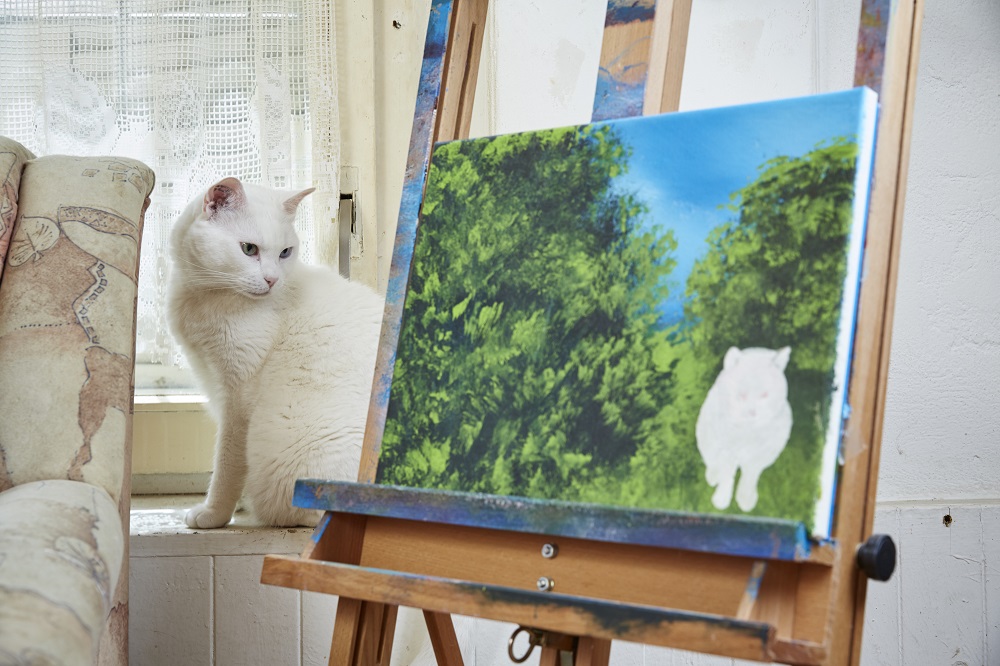
Slavo has also made friends in Bern: firstly, with homeless people and then with neighbours and passers-by, who initially spoke to him about his animals. In spite of the great geographical distance between them, Slavo also maintains a very close relationship with his two children. Nowadays Slavo’s daughter is mother to a six-year-old girl and studies geology in Sofia. His son is an IT specialist and lives in France.
After his home near Nice was demolished, Slavo found himself forced to move on in 2010. Aside from the fact that Lourd and Matz cost a lot of money as a result of vaccinations, neutering and illnesses, travelling with animals was not at all easy. Slavo found out that, in Spain, dogs are not allowed on public transport and that, in Sweden, there are very strict regulations for bringing in animals. In Stockholm, he was put in a cell on suspicion of animal smuggling: Slavo had come into the country not knowing the existing laws and had not registered the two animals. They both ended up in quarantine.
“Don’t worry, you have to pay 10,000 Swedish kroner (about 1100 CHF), then you’ll get your animals back. Where do we reach you? Are you in a hotel?”
“No, I’m in a park,” he answered.
“How does someone who is sleeping in a park pay for buses?”
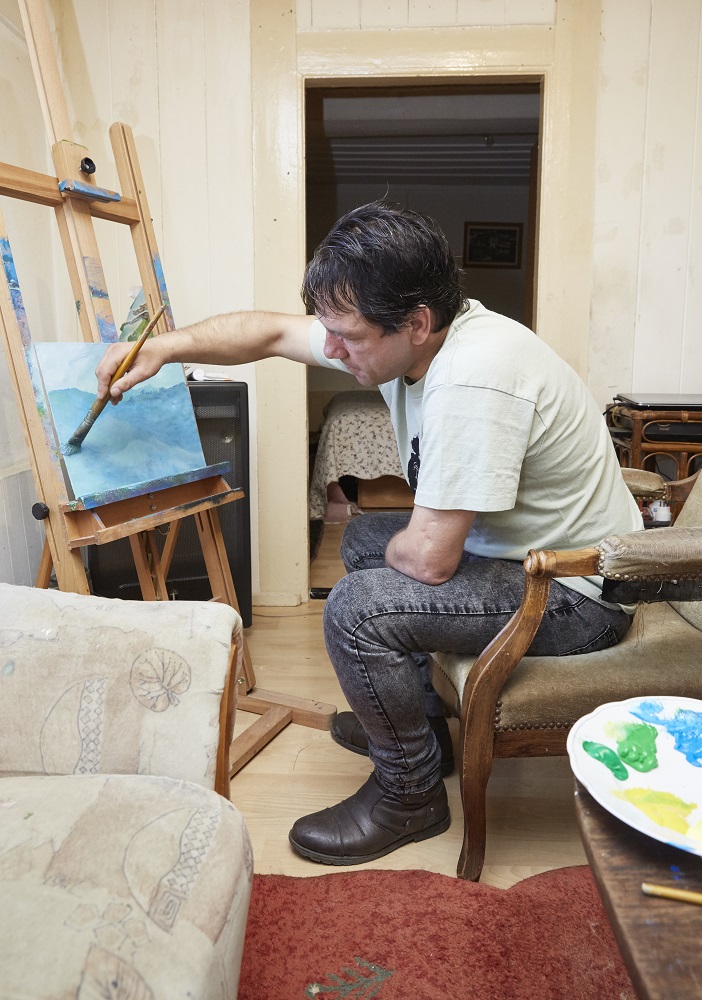
Slavo cried his eyes out because no-one would tell him what would happen to his animals. He might have a strong physique, but his insides are butter-soft. In the end, the story turned out well. “I came up with the money for the Swedish permits for Lourd and Matz,” Slavo smiles.
As soon as the trio were reunited, Slavo booked the first ferry to Finland, where, via a stopover in Germany, their travels took them to Switzerland for the first time. “We had lots of time between our arrival in Bern and our onward journey to France. There was a church in front of the station, and I sat down on the steps. While the animals ate, an old woman came up to us. She greeted me in a friendly way and gave me twenty Swiss francs.”
Slavo has never forgotten the warm welcome that he received from the old lady in front of the Church of the Holy Spirit. He wanted to visit Bern again, which is what he did in 2011. From the outset, he felt comfortable there and quickly made friends, he recalls with a smile. Then a friend helped him get a cheap apartment in an old rickety house in Zollikofen, where he has now lived for four years. His home gives the impression of tidiness. In the bathroom of his small, ancient, 2.5 room apartment, you find tubes of paint and brushes next to toiletries and, in the kitchen, there are rows of cleaning products next to the dog and cat food. Plastic flowers and a dream catcher hang on the wall, and there is a crocheted privacy screen on the window. On the easel in the living room is Slavo’s current work in progress.
“You’ve seen what a good narrator he is,” says a visiting friend. She was the one who told him to put his odyssey down on paper. And that is precisely what Slavo did over a period of just two months. The result is a book of almost 200 pages, translated into German and printed in Bulgaria. It is the story of his experiences of travelling through Europe with Matz and Lourd, and the story of his life on the streets of Bern. A tower of books in his bedroom is testament to this: 200 copies of the book have just been delivered from Bulgaria.
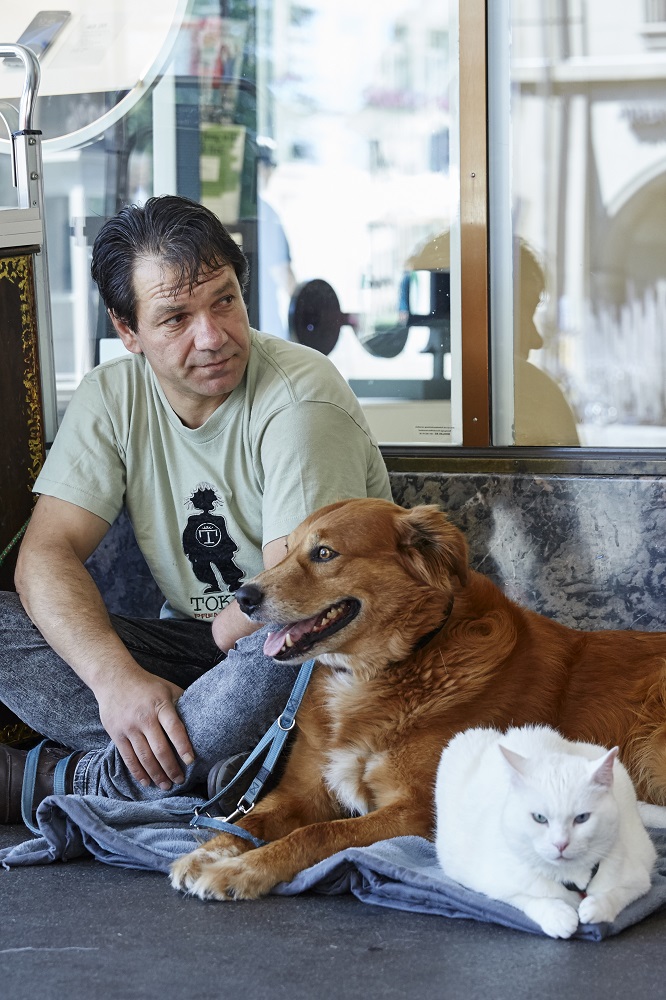
At present, Slavo lives as an independent artist and holds a Residence Permit B, solely as a result of the sale of his books and pictures. He stresses that he claims neither income support nor receives disability insurance payments. If he goes out with Lourd at his feet and Matz on his left shoulder – his cat chose this position itself and clearly feels comfortable up there – the trio attract a lot of attention. Slavo also carries a kind of electronic soundbox that he put together himself. Because it is forbidden to draw on the streets in Switzerland, he had to come up with something else, and so he put this box together, into which he built in an MP3 player and a speaker. He was then fined for this, because electronically amplified music is not allowed on the streets in Switzerland, something he did not know. “Nowadays I use the sound box as a book table,” says Slavo with a broad grin, exposing a gap in his teeth.
Looking back on his ten-year odyssey as a homeless person, he sees only a few negatives from this time. “There’s a lot of talk about racism in society, but that doesn’t happen on the street,” he says. “Anyway, everything depends very much on how we look at life. If you only look at the bad side, you only see bad things. Switzerland is a country where it does not matter how much money you have. People take you as you are,” Slavo smiles. He is unable to confirm whether the usual stereotype of the remote and reserved Swiss is correct. But, of course, there are lots of rules here. “I prefer countries with clear rules: during my years of travel, I always did well in these countries,” he says. “I am happy that the three of us have finally found a home where I can work on my new book in peace, because I’m tired of travelling,” Slavo says, and gently ruffles Lourd’s coat. His next book is supposed to be a children’s book. The narrator? A white cat with one blue eye and one green eye.
Translated from German by Edward Alaszewski
INSP members can download this feature from the INSP News Service here.





